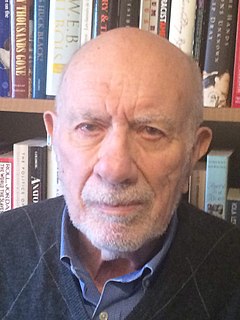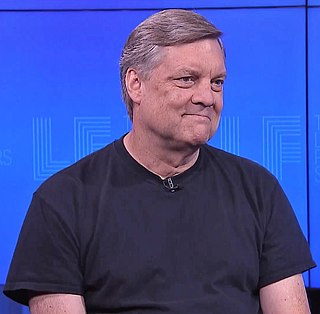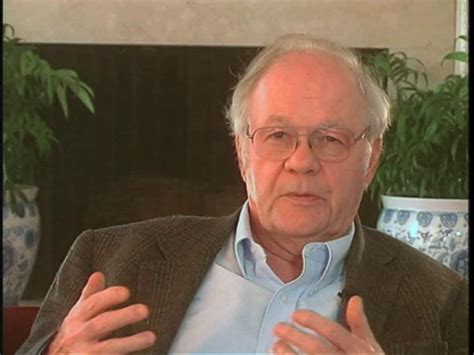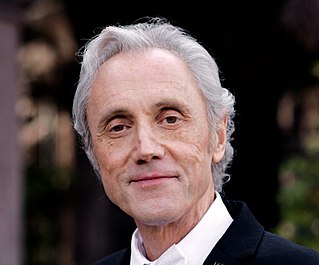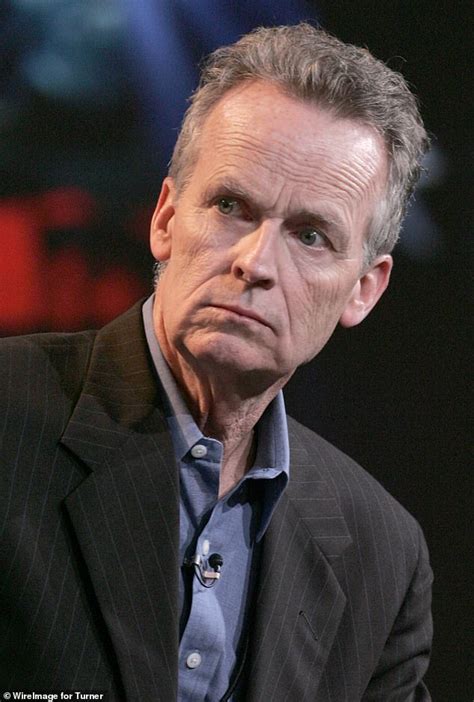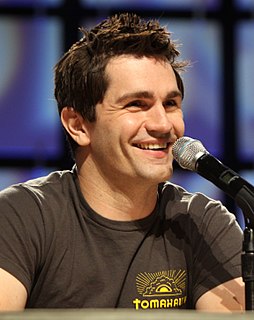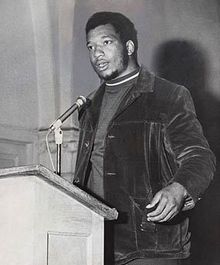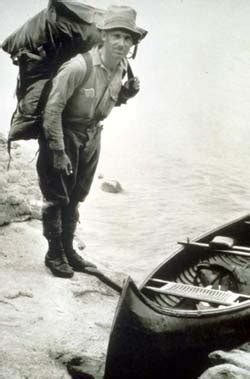Top 1200 Moral Struggle Quotes & Sayings - Page 14
Explore popular Moral Struggle quotes.
Last updated on April 22, 2025.
This trial cannot be separated from the process of the historical struggle in Palestine that continues today between the Zionist Movement and the Palestinian people, a struggle that centers on Palestinian land, history, civilization, culture and identityAs for your judicial apparatus, which is where this court comes from: it is one of the instruments of the occupation whose function is to give the cover of legal legitimacy to the crimes of the occupation, in addition to consecrating its systems and allowing the imposition of these systems on our people through force.
But what of the voice and judgment of conscience? The difficulty is that we have a conscience behind our conscience, an intellectual one behind the moral. ... We can see quite well that our opinions of what is noble and good, our moral valuations, are powerful levers where action is concerned; but we must begin by refining these opinions and independently creating for ourselves new tables of values.
Both Marx and Nietzsche understood that moral outrage is the last resort of the powerless. That is why Marx refused to issue moral condemnations of capitalism, preferring instead to lay out, calmly and ruthlessly, his reasons for believing that it is destined to be replaced by socialism. And that is why Nietzsche mocks Christianity for portraying its crucified Saviour as bait wriggling on a hook to catch unsuspecting souls.
Even as a woman who has a voice in the world, I struggle to find it, to use it, to keep it, to stretch it, to take risks with my words. And I don't think I'm alone. I think the most powerful women among us struggle with how to use their voice. Because I think what every woman knows, is that when she speaks her truth she is at risk - whether it's Hillary Clinton or a rural woman in Rwanda.
How can we encourage other human beings to extend their moral sympathies beyond a narrow locus? How can we learn to become mere human beings, shorn of any more compelling national, ethnic, or religious identity? We can be reasonable. It is in the very nature of reason to fuse cognitive and moral horizons. Reason is nothing less than the guardian of love.
Morality is neither rational nor absolute nor natural. World has known many moral systems, each of which advances claims universality; all moral systems are therefore particular, serving a specific purpose for their propagators or creators, and enforcing a certain regime that disciplines human beings for social life by narrowing our perspectives and limiting our horizons.
I wanted to make sure the focus [in The Land] was on human beings themselves and their decisions, but still connected to the urban environment that people associate as being black. I think I was able to make a film without commenting on "black this or black that" and you still feel the presence of it. There's no one character who's saying "we're all black and we're all in this struggle." It's that you just feel it. Some of that is because we get the sense from a lot of independent films that black people struggle all the time.
Successful or not, acts of physical courage always bring honor. It is the smaller forms of valor - standing up for principle at the risk of social disapproval, economic loss or injury to career - that require the greatest moral will power. Since there is usually little upside to winning and a significant and often lasting downside to losing, moral courage often requires as much character as physical bravery.
It seems fair to say that while the moral standards of the nineteenth century persisted almost unchanged into the twentieth, moral practices changed sharply, and that though the standards of the nineteenth century persisted the institutions that had sustained them and the sanctions that had enforced them lost influence and authority.
While theoretically a person may block God out, logically there will be a breakdown because ultimately all enunciation implies a moral doctrine of some kind. And if that moral doctrine is not absolute then the definer himself becomes undefined. That's what we are living with - an undefined definer giving us definitions for our course, and we are being trapped in the quicksand of the absence of objective truth.
We can't literally talk with everybody else on the planet or even with representatives of every group. But we can be in favor of the respectful exchange of ideas in ways that don't presuppose that all the right answers are on our own side. Still, we should all have moral bottom lines. Once genocide or torture begins the priority shifts from understanding to stopping it. One hope I have for the global conversation as instantiated in human rights treaties is that we are slowly coming to consensus on certain moral baselines.
It is true (independently of our conceptualisation) that it is wrong to inflict pain on a sentient creature for no reason (she doesn't deserve it, I haven't promised to do it, it is not helpful to this creature or to anyone else if I do it, and so forth). But if this is a truth, existing independently of our conceptualisation, then at least one moral fact (this one) exists and moral realism is true. We have to accept this, I submit, unless we can find strong reasons to think otherwise.
The time has also come to recognize the painful truth that traditional Judeo-Christian moral values of pain and pleasure in human relationships have contributed substantially to child abuse and to the prevalence of physical violence in Western civilization.... The religious system upon which our culture is based holds that pain, suffering and deprivation are moral and necessary to save one's soul and make one a 'good person.' The crucifixion and scourging of Christ are examples.
...any belief in supernatural creators, rulers, or influencers of natural or human process introduces an irreparable split into the universe, and prevents us from grasping its real unity. Any belief in Absolutes, whether the absolute validity of moral commandments, of authority of revelation, of inner certitudes, or of divine inspiration, erects a formidable barrier against progress and the responsibility of improvement, moral, rational, and religious.
It seems perfectly clear that Economy, if it is to be a science at all, must be a mathematical science. There exists much prejudice against attempts to introduce the methods and language of mathematics into any branch of the moral sciences. Most persons appear to hold that the physical sciences form the proper sphere of mathematical method, and that the moral sciences demand some other method-I know not what.
While I think in principle people should not have irrational beliefs, I should say that as a matter of fact, it is people who hold what I regard as completely irrational beliefs who are among the most effective moral actors in the world, in many respects. They're among the worst, but also among the best, even though the moral beliefs are ostensibly the same.
I believe our task is to develop a moral and aesthetic imagination deep enough and wide enough to encompass the contradictions of our time and history, the tremendous loss and tragedy as well as greatness and nobility, an imagination capable of recognizing that where there is light there is shadow, that out of hubris and fall can come moral regeneration, out of suffering and death, resurrection and rebirth.
Wherever moral ambition exists, there right exists. And moral ambition itself must be presumed present in subconsciousness, even when the conscious self seems to reject it, so long as society has resources for bringing it into action; in much the same way that the life-saver presumes life to exist in the drowned man until he has exhausted his resources for recovering respiration.
Anarchism asserts the possibility of an organization without discipline, fear, or punishment, and without the pressure of poverty: a new social organism which will make an end to the terrible struggle for the means of existence, --the savage struggle which undermines the finest qualities in man, and ever widens the social abyss. In short, Anarchism strives towards a social organization which will establish well-being for all.
It would appear... that moral phenomena, when observed on a great scale, are found to resemble physical phenomena; and we thus arrive, in inquiries of this kind, at the fundamental principle, that the greater the number of individuals observed, the more do individual peculiarities, whether physical or moral, become effaced, and leave in a prominent point of view the general facts, by virtue of which society exists and is preserved.
In order to obtain the goal of returning to Palestine, all of us sometimes have to grit our teeth. But it is forbidden that this harm the continued struggle against the Zionist enemy. Cooperation and understanding between the P.L.O. and the rejectionist organizations is what will lead to the speedy retreat of Israel from the occupied territories in the first stage, until the establishment of a Palestinian state with its capital in Jerusalem. Only a state like that can then continue the struggle to remove the enemy from all Palestinian lands.
Suppose . . . burglars had made entry into this . . . [library]. Picture them seated here on this floor, pouring the light of their dark-lanterns over some books they found, and thus absorbing moral truths and getting moral uplift. The whole course of their lives would have been changed. As it was, they kept straight on in their immoral way and were sent to jail. For all I know, they may next be sent to Congress.
The missionary is no longer a man, a conscience. He is a corpse, in the hands of a confraternity, without family, without love, without any of the sentiments that are dear to us. Emasculated, in a sense, by his vow of chastity, he offers us the distressing spectacle of a man deformed and impotent or engaged in a stupid and useless struggle with the sacred needs of the flesh, a struggle which, seven times out of ten, leads him to sodomy, the gallows, or prison.
Armed struggle is a necessary and morally correct form of resistance in the Six Counties against a government whose presence is rejected by the vast majority of the Irish people There are those who tell us that the British government will not be moved by armed struggle. As has been said before, the history of Ireland and of British colonial involvement throughout the world tells us that they will not be moved by anything else.
Condemning class struggle does not mean condemning every possible form of social conflict. Such conflicts inevitably arise and Christians must often take a position in the "struggle for social justice." What is condemned is "total war," which has no respect for the dignity of others (and consequently of oneself). It excludes reasonable compromise, does not pursue the common good but the good of a group, and sets out to destroy whatever stands in its way.
Moral certainty is always a sign of cultural inferiority. The more uncivilized the man, the surer he is that he knows precisely what is right and what is wrong. All human progress, even in morals, has been the work of men who have doubted the current moral values, not of men who have whooped them up and tried to enforce them. The truly civilized man is always skeptical and tolerant.
For God to be kept out of the classroom or out of America's public debate by nervous school administrators or overcautious politicians serves no one's interests. That restriction prevents people from drawing on this country's rich and diverse religious heritage for guidance, and it degrades the nation's moral discourse by placing a whole realm of theological reasoning out of bounds. The price of that sort of quarantine, at a time of moral dislocation, is - and has been - far too high.
My views on charity are very simple. I do not consider it a major virtue and, above all, I do not consider it a moral duty. There is nothing wrong in helping other people, if and when they are worthy of the help and you can afford to help them. I regard charity as a marginal issue. What I am fighting is the idea that charity is a moral duty and a primary virtue.
That's one thing about Dave Filoni. He doesn't call me up unless there's something to think about or there's something that we have to work out on a philosophical or moral or a mythological riddle that we need to solve. Some sort of moral conundrum that we need to place our feet on one side or the other. It's fun when we can ambiguously put those feet into the sand and let the fans discover for itself what it all means.
Relief is a great feeling.It's the emotional and physical reward we receive from our bodies upon alleviation of pain, pressure and struggle. A time to bask in the lack of the negative.And yet, think about it—relief is really the status quo, a negation of the suffering, a nothing in itself. It is the way things were before the pressure and struggle began.So, is it a step back? A regression?Or is it an opportunity to regroup, start over, and move in a different direction?Use your moment of relief well.
I feel somewhat privileged because I often feel very sorry for kids. I often feel very sorry for 20-year-olds and teens who grew up with the internet and have grown up completely connected because, for me, people like me know what it was to struggle, but it wasn't a struggle. It was great! It was fantastic. The thrill of the hunt.
And so was Luria, whose words now came back to me: ‘A man does not consist of memory alone. He has feeling, will, sensibility, moral being ... It is here ... you may touch him, and see a profound change.’ Memory, mental activity, mind alone, could not hold him; but moral attention and action could hold him completely.
No genuine equality, no real freedom, no true manhood or womanhood can exist on any foundation save that of pecuniary independence. As a right over a man's subsistence is a power over his moral being, so a right over a woman's subsistence enslaves her will, degrades her pride and vitiates her whole moral nature.
Poetry interprets in two ways: it interprets by expressing, with magical felicity, the physiognomy and movements of the outward world; and it interprets by expressing, with inspired conviction, the ideas and laws of the inward world of man's moral and spiritual nature. In other words, poetry is interpretative both by having natural magic in it, and by having moral profundity.
Black people need some peace. White people need some peace. And we are going to have to fight. We're going to have to struggle. We're going to have to struggle relentlessly to bring about some peace, because the people that we're asking for peace, they are a bunch of megalomaniac warmongers, and they don't even understand what peace means.
The struggle for socialism is the struggle for proletarian (working class) democracy. Proletarian democracy is not the crown of socialism. Socialism is the result of proletarian democracy. To the degree that the proletariat mobilizes itself and the great masses of the people, the socialist revolution is advanced. The proletariat mobilizes itself as a self-acting force through its own committees, unions, parties, and other organizations.
So, if you cannot understand that there is something in man which responds to the challenge of this mountain and goes out to meet it, that the struggle is the struggle of life itself upward and forever upward, then you won’t see why we go. What we get from this adventure is just sheer joy. And joy is, after all, the end of life. We do not live to eat and make money. We eat and make money to be able to enjoy life. That is what life means and what life is for.
The reason I love travel is not just because it transports you in every sense, but because it confronts you with emotional and moral challenges that you would never have to confront at home. So I like going out in search of moral and emotional adventure which throws me back upon myself and forces me to reconsider my assumptions and the things I took for granted. It sends me back a different person.
Indiscriminate tolerance and indiscriminate condemnation are not two opposites: they are two variants of the same evasion. To declare that “everybody is white” or “everybody is black” or “everybody is neither white nor black, but gray,” is not a moral judgment, but an escape from the responsibility of moral judgment.
There were various aspects of Sun Tzu's approach that appealed to Ho Chi Minh: a) to learn to understand both the enemy and yourself, to seek out his weaknesses and your own strengths, and act accordingly, b) to make ample use of subterfuge and stratagem in order to defeat or disarm your adversary, and c) to use outright violence only when absolutely necessary in the belief that political struggle was more effective than military struggle.
The doctrine that might makes right has covered the earth with misery. While it crushes the weak, it also destroys the strong. Every deceit, every cruelty, every wrong, reaches back sooner or later and crushes its author. Justice is moral health, bringing happiness, wrong is moral disease, bringing mortal death.
There is, however, a moral basis for the vegetarian diet for which the indeterminate value of an animal's life takes on irrelevance. And that moral basis is a concern for the environment, a value as absolute as the value we all place on human life, since humanity will not survive for long on a poisoned planet. To be an environmentalist who happens to eat meat is like being a philanthropist who doesn't happen to give to charity.
People talk about the idea of special relationships, that is, the morality only really binds people who stand in some kind of contractual relationship with each other but in fact if you take that seriously as a criteria of when we have a moral relationship then it's hard to see why we would have moral obligations to strangers for example or people who live across the sea from us but yet, every decent person believes that we do.
My first fundamental premise of our faith is that God is real and so are eternal truths and values not provable by current scientific methods. These ideas are inevitably linked. Like other believers, we proclaim the existence of the ultimate lawgiver, God our Eternal Father, and the existence of moral absolutes. We reject the moral relativism that is becoming the unofficial creed of much of modern culture.
The growth of our knowledge is the result of a process closely resembling what Darwin called 'natural selection'; that is, the natural selection of hypotheses: our knowledge consists, at every moment, of those hypotheses which have shown their (comparative) fitness by surviving so far in their struggle for existence, a competitive struggle which eliminates those hypotheses which are unfit.
Natural good is' so intimately connected with moral good, and natural evil with moral evil, that I am as certain as if I heard a voice from heaven proclaim it, that God is on the side of virtue. He has learnt much, and has not lived in vain, who has practically discovered that most strict and necessary connection, that does and will ever exist between vice and misery, and virtue and happiness.
At the center of the Christian faith is the affirmation that there is a God in the universe who is the ground and essence of all reality. A Being of infinite love and boundless power, God is the creator, sustainer, and conserver of values....In contrast to the ethical relativism of [totalitarianism], Christianity sets forth a system of absolute moral values and affirms that God has placed within the very structure of this universe certain moral principles that are fixed and immutable.
Recreation in the open is of the finest grade. The moral benefits are all positive. The individual with any soul cannot live long in the presence of towering mountains or sweeping plains without getting a little of the high moral standard of Nature infused into his being ... with eyes opened, the great story of the Earth's forming, the history of a tree, the life of a flower or the activities of some small animal will all unfold themselves to the recreationist.
As Muslims, we must have an active presence based on ethical and moral consistency. We need to be very vocal, to inform people, to demonstrate when necessary. We need to write so that the people understand that what they are getting from the media and politicians is biased and not accurate. And this is true especially when it comes to some communities within the U.S. or with respect to the Middle East and Africa. This is what I am expecting from a new generation of leaders: Meet these expectations of moral consistency.
For an act to be moral the intention must be based on compassion, not duty. We do something because we want to do it, because we feel we have to do it, not because we ought to do it. And even if our efforts fail - or we never even get to implement them - we are still moral because our motivation was based on compassion.
How does something immoral, when done privately, become moral when it is done collectively? Furthermore, does legality establish morality? Slavery was legal; apartheid is legal; Stalinist, Nazi, and Maoist purges were legal. Clearly, the fact of legality does not justify these crimes. Legality, alone, cannot be the talisman of moral people.
In ancient times, any man rising up above the common people tried to shape his life according to his principles; it is no longer like than now; it is (because) for the ancients, moral was a principle of inner life, whereas in our days, most of the time one is content to adhere to an official moral, that we recognize in theory, but that one does not care to put into practice.
... these great improvements of modern times are blessings or curses on us, just in the same ratio as the mental, moral, and religious rule over the animal; or the animal propensities of our nature predominate over the intellectual and moral. The spider elaborates poison from the same flower, in which the bee finds materials out of which she manufactures honey.
We have a lot more work to do in our common struggle against bigotry and discrimination. I say "common struggle" because I believe very strongly that all forms of bigotry and discrimination are equally wrong and should be opposed by right-thinking Americans everywhere. Freedom from discrimination based on sexual orientation is surely a fundamental human right in any great democracy, as much as freedom from racial, religious, gender, or ethnic discrimination.
I don't have the slightest interest in gold. I like understanding what works and what doesn't in human systems. To me that's not optional; that's a moral obligation. If you're capable of understanding the world, you have a moral obligation to become rational. And I don't see how you become rational hoarding gold. Even if it works, you're a jerk.



